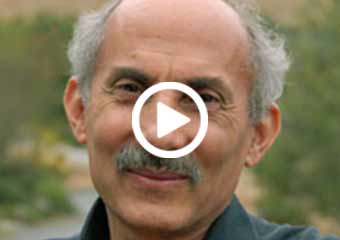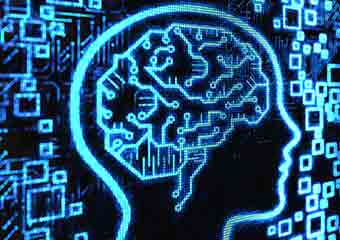When a traumatic event triggers our internal alarm system, the body goes into fight, flight, or freeze . . . . . . but what happens in the brain during trauma? According to Dan Siegel, MD, there are two key chemical reactions to trauma (and one can play a role in actually shrinking part of […]
Can Traumatic Experience Strengthen Brain Function?
For years we’ve been able to see differences between a healthy brain and that of a person who’s been diagnosed with PTSD. But can we detect differences within a population, all of whom have experienced traumatic events? And if so, what could that reveal about why some people develop PTSD while others don’t? Dr. Samantha […]
How Mindfulness Can Help Us Work through Grief
When a person experiences significant loss, it’s natural to want to offer comfort and relieve their pain. But according to Jack Kornfield, PhD, it’s crucial not to rush past difficult emotions in the healing process. In fact, as Jack explains, it’s important to learn how to honor and acknowledge grief. Jack reveals more in the […]
The Impact of Mindfulness in the Lives of At-Risk Youth
Research is starting to show that mindfulness is impacting new populations. But can it help at-risk youth who are exposed to negative role models, experience unstable homes and are getting in trouble with the law? To look at this issue, Dr. Karen Bluth and her team of researchers from the University of North Carolina, Chapel […]
Three Ways Trauma Changes the Brain
The treatment of trauma can be some of the most complex work practitioners face. And for years, this challenge was complicated by not having a clear picture of the impact that trauma has on the brain. But scientific advances within just the past few years have opened the eyes of practitioners to what actually happens […]
Treating Severe Trauma in Iraq
Trauma doesn’t discriminate. It can affect anyone, anywhere throughout the world and, unfortunately . . . . . . not everyone has similar access to resources for treating trauma or PTSD. So, what can we do to reach survivors of trauma who have limited access to treatment options? Paul Bolton, MBBS and a team of […]
An Exercise to Boost the Brain’s Natural Anti-Anxiety Drug?
Is there an exercise that can boost feel-good chemicals in your brain while reducing anxiety and improving your mood? The answer is yes – it’s yoga. Now yoga isn’t the only exercise that’s been shown to be effective in reducing anxiety, but Chris Streeter, MD and her colleagues from the Boston University School of Medicine […]
Greater Empathy – In Just 3 Hours?
How attentive, empathetic, and caring was your physician the last time you had to go to the doctor’s office? Or, if you’re a physician, do you ever wonder how your patients perceive you? We recently reported on a study that showed severity of cold symptoms decreased among patients treated by physicians who demonstrated high levels […]
Can Traumatic Memories Be Changed?
Experiences that are distressing, painful and, perhaps, even traumatic are unavoidable in life. But are there ways we can work with people to prevent memories of traumatic events from developing into PTSD (post-traumatic stress disorder)? One possibility that’s being investigated for accomplishing this is a method called “updating.” This approach uses verbal techniques to change […]
Injury, Illness, and PTSD
Does serious illness increase the risk of developing PTSD? We wrote about this topic back in 2011. At that time, a study in the Journal of the American Academy of Orthopedic Surgeons reported that 20-51% of patients who suffered musculoskeletal injuries went on to develop PTSD. Another study, from the Journal of Psychosomatic Research, found […]









